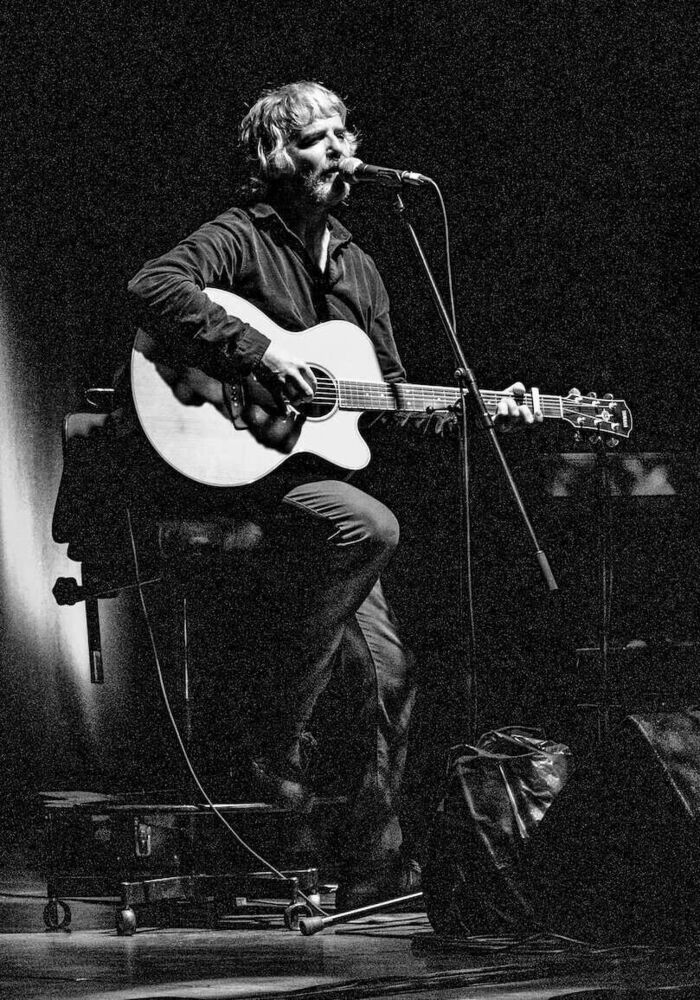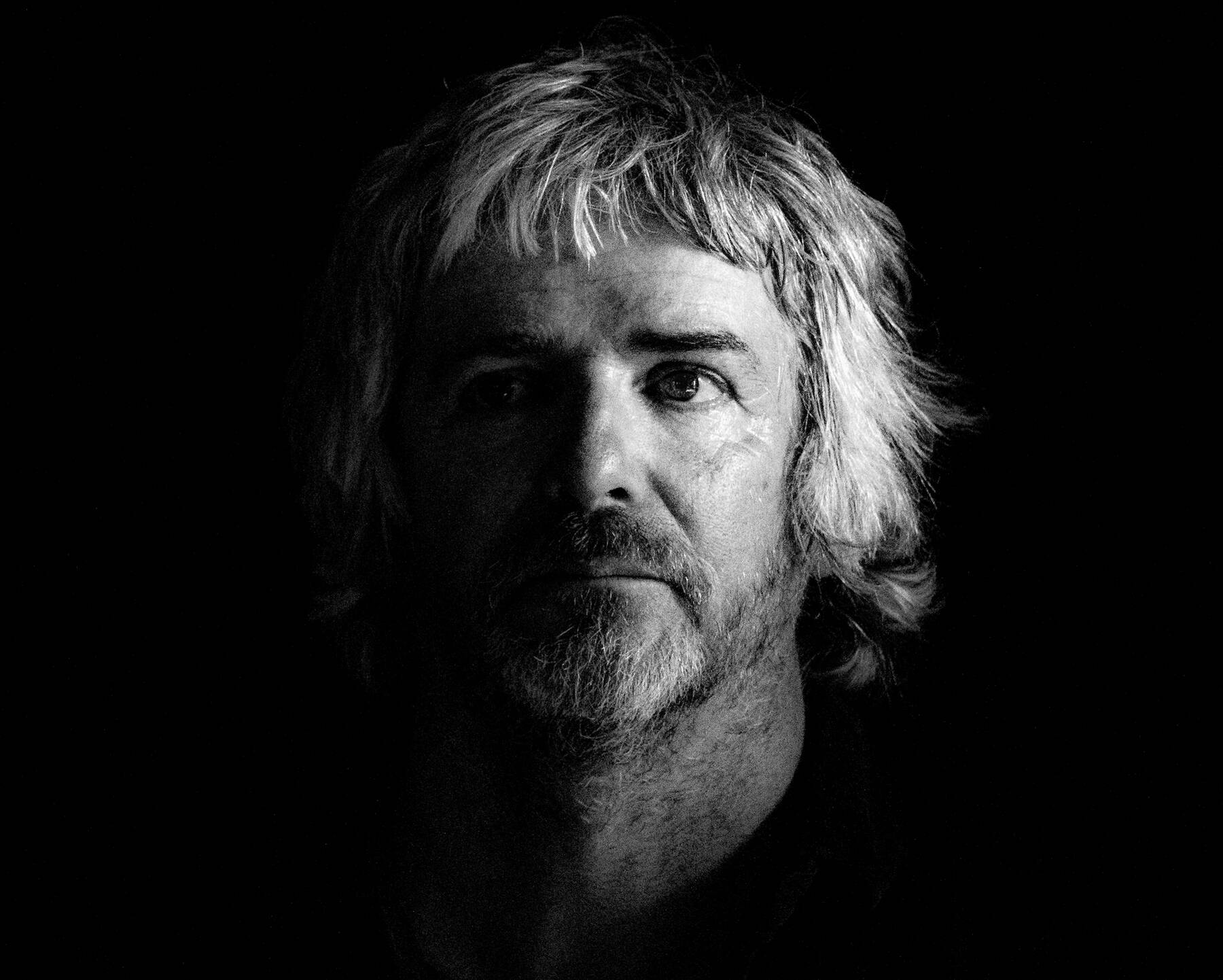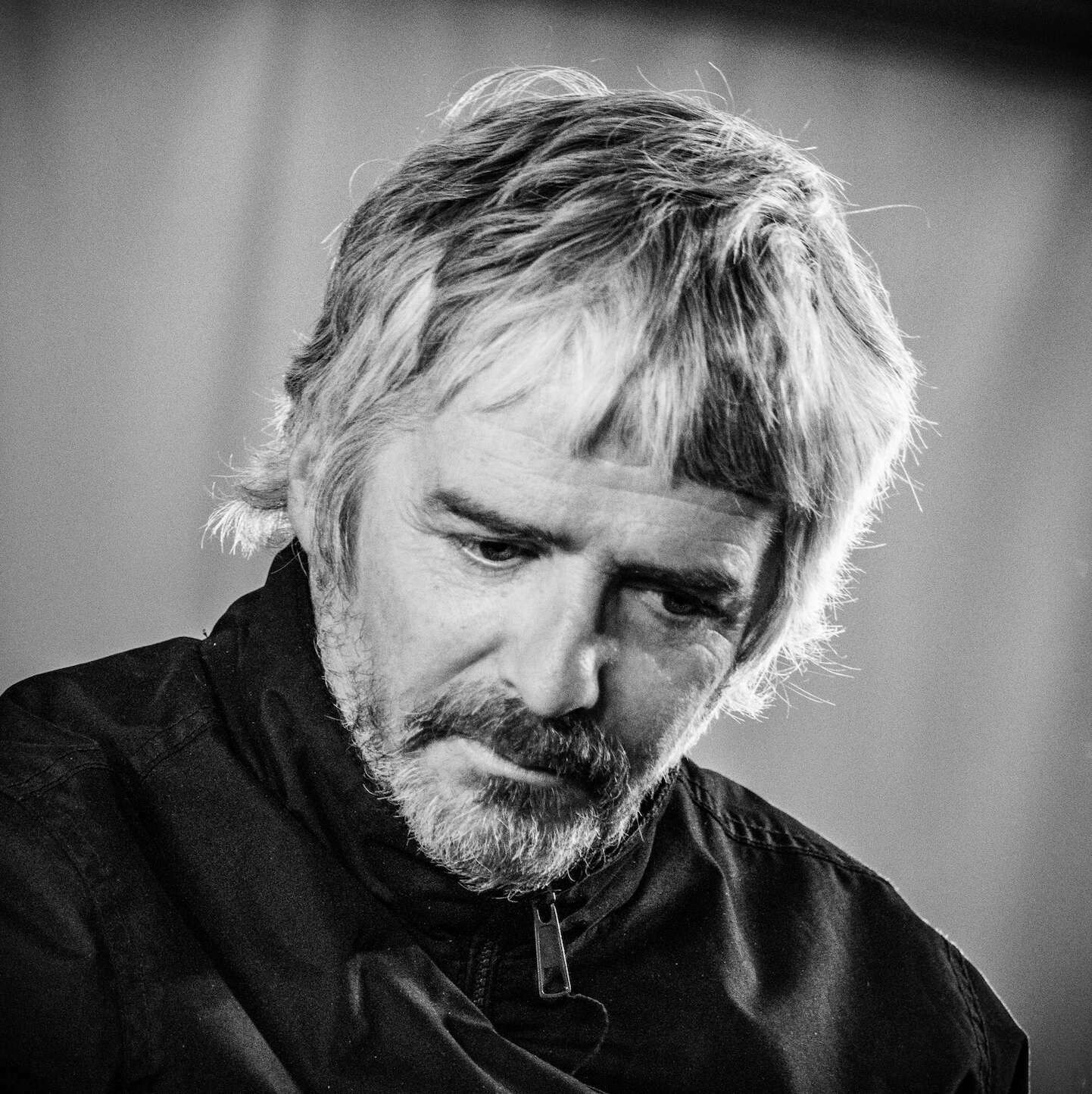The musical palette concocted by Fidler and the rest of the band has largely steered the direction taken with The Light Fantastic. While Bramwell is very much the chief songwriter, when asked about his approach to writing the record, he says the process was more about curating his material for this particular line-up.
“I’ve never really sat down and gone, apart from Kloot’s first album, this is going to be the album, it’s going to sound like this,” he elaborates. “The first song on the album is actually a song I wrote before my first album. The songs I put on this record are the ones that have suited the singing and Harriet’s cello. At any time, I have a lot of ideas on my phone and even stuff on cassettes from when I used to walk around with a Walkman. I chose the songs that I had in my bank of songs that really worked when we all played together. I do think an album should have a cohesive sound to it, so choosing the songs that worked best with this group is what gives it its cohesion. It’s not a very romantic answer that, but I just went, ‘right, what are the best songs for this lot’ [laughs]?”
On a more general note, he adds that he’s never adopted a songwriting style as such, but more an openness to taking inspiration from anywhere and everywhere.
“I have a really open-minded attitude to songwriting,” he continues. “I don’t care where it comes from as long as I get it. The main thing with writing is when you get a tiny germ of something you just need to get it down. Years ago I was at a family meal where I had to get up and leave – I wasn’t very popular! – because something popped into my head and I was off! You have to be a bit like that I feel. I like to play guitar every day, not necessarily writing, but just connecting with music. I rarely sit down to write something. It just happens.
“There’s a Kloot song called Avenue Of Hope and there is a great line it that goes ‘you’re like the clouds in my hometown, you just grow fat and hang around’, and I can say that because I didn’t write it - it was literally written on a toilet wall. I saw it and just started singing it. So, there is someone out there who wrote that! It’s a belter. It was in the Temple of Convenience in Manchester, which is a bit of a musicians’ haunt, so I thought someone might come forward and say they wrote it, but no one has. Maybe I’ll be inundated after this interview!”
One aspect of Bramwell’s work that has been a constant is his knack for melody. Despite growing up surrounded by punk and new wave, he would naturally gravitate towards, as he puts it, the less cool, poppier, more melodic records in his parents’ collection.
“I suppose I’ve always just liked melodic music,” he smiles. “The gigs I went to see as a kid was like The Dammed and Motorhead, but its probably telling that the first gig I went to was with my mum, dad, and sister to see Petula Clark when I was nine. And the first gig I went to with just my sister when I was about 13 was Wings. I’m perhaps more interested in melody than a lot of the cooler people have been. Even when new wave and punk was happening, I was still listening to Gilbert O’Sullivan who I still love.”
Awaiting the imminent arrival of his bandmates to his rented rehearsal space, our focus returns to the album and what The Light Fantastic means for Bramwell’s future. Does it represent an opening of the floodgates after a seven-year spell without releasing music? Does it draw a line under an especially difficult chapter in his life? According to him, it’s a bit more pragmatic than that.
“Making albums is great, and you’re a very lucky person if you are able to make music and put it out, but I am a person who really cares about playing live, and I think just to be able to get this album out live and play it to people is really exciting,” he says. “It’s not a very profound answer [he laughs] but I’m looking forward to the rehearsal today. Once and album is recorded I’m just thinking about how we are doing it live, and those are the versions I keep in my head. But that said, everything else almost seems like another life, and it feels like a real fresh start. Not that there was anything wrong with the past, but there comes a point where you have to start afresh. And that’s what this is.”
PHOTOS: Anthony Harrison





